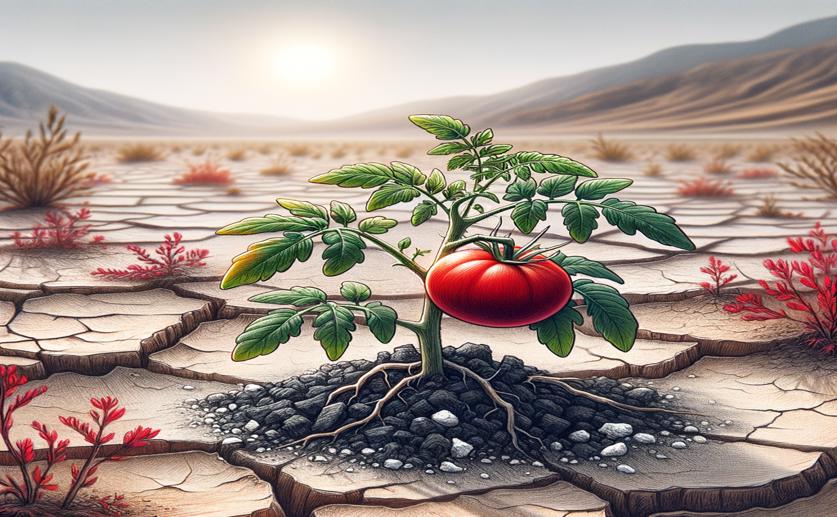
How Biochar Helps Tomatoes Grow in Drought and Salty Conditions
Greg Howard
10th May, 2024

Image Source: Natural Science News, 2024
Key Findings
- In Pakistan's arid regions, tomatoes suffer from growth issues due to drought and saline water
- Adding biochar to soil helps tomatoes grow better, even with less water and high salinity
- Biochar improves water efficiency and plant health, leading to increased tomato yields
AgricultureSustainabilityPlant Science
References
Main Study
1) The impact of biochar addition on morpho-physiological characteristics, yield and water use efficiency of tomato plants under drought and salinity stress
Published 9th May, 2024
https://doi.org/10.1186/s12870-024-05058-9
Related Studies
2) Genomics, Proteomics, and Metabolomics Approaches to Improve Abiotic Stress Tolerance in Tomato Plant.
3) Biochar and compost from cotton residues inconsistently affect water use efficiency, nodulation, and growth of legumes under arid conditions.
4) Combined biochar and water-retaining agent application increased soil water retention capacity and maize seedling drought resistance in Fluvisols.
5) The balance of survival: Comparative drought response in wild and domesticated tomatoes.



 28th April, 2024 | Jenn Hoskins
28th April, 2024 | Jenn Hoskins